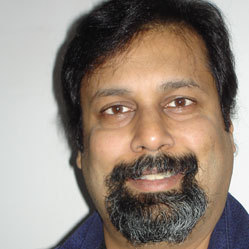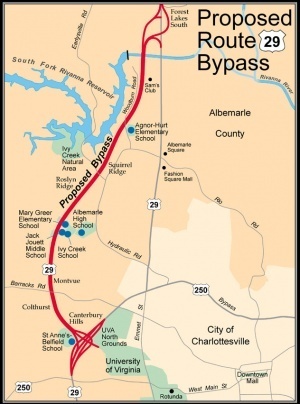David Swanson's Blog, page 145
May 15, 2013
Talk Nation Radio: Arun Gupta on Iraqis in California and Professor Petraeus
 https://soundcloud.com/davidcnswanson/talk-nation-radio-arun-gupta
https://soundcloud.com/davidcnswanson/talk-nation-radio-arun-gupta
Arun Gupta, whose writings can be found at occupyusatoday.com, discusses the lives of refugees from the U.S. war on Iraq now living in California, and the crimes of David Petraeus who has now been made a professor by the City University of New York and the University of Southern California.
Total run time: 29:00
Host: David Swanson.
Producer: David Swanson.
Music by Duke Ellington.
Download or get embed code from Archive or AudioPort or LetsTryDemocracy.
Syndicated by Pacifica Network.
Please encourage your local radio stations to carry this program every week!
Past Talk Nation Radio shows are all available free and complete at
http://davidswanson.org/talknationradio
Hit and Stay
The CIA has been so busy consulting on Zero Dark Thirty, not to mention funding Hamid Karzai, bribing Russians, lying about weapons, and conducting humanitarian drone murders, that it didn't have any time at all to help out with Hit and Stay, and yet arguably the latter turned out to be the better film despite such a severe handicap. You can check it out at http://hitandstay.com
This is a film about people taking risks to prevent killing rather than to engage in it. The focus is on the Catonsville Nine action on May 17, 1968, 45 years ago this Friday. That action, in which activists burned draft cards and apologized for burning papers rather than children, was preceded by the Baltimore Four action of October 27, 1967, in which four activists poured their blood on draft papers. It was followed by countless other actions, leading right up to the Transform Plowshares action in Tennessee for which three are currently awaiting sentencing.
The Catonsville action received so much publicity that it had something of an Occupy effect. That is, others who felt the same way about the slaughter of the Vietnamese people but didn't believe they could do anything, suddenly began doing something. Some did very similar actions. Others tried their own approaches to the same problem. Catonsville Nine inspired other tactics, enlarged marches and rallies, and generally moved the peace movement forward. The creativity and novelty of the action even made people think about the war who hadn't before.
Draft records were destroyed, preventing the drafting of those people. So, this was substantive resistance that couldn't be undone. At the same time it was educational and inspirational. It didn't inspire sadistic shouts of "Bin Laden's dead!" It inspired people to act on their moral outrage. There were over 100 actions taken at draft boards over the next few years. Many thousands of people's draft records were destroyed, saving them from the draft and saving those they would have killed from that fate. Some of the draft offices were shut down permanently. In the end the Selective Service declared it was under assault, and Nixon declared that the military would now be volunteer.
Some of the actions went after FBI offices and U.S. attorneys offices. Activists never yet apprehended stole COINTELPRO documents and sent them to the media, exposing the FBI's abuses and creating a major news story that lasted until it was overshadowed by the Pentagon Papers -- released by Dan Ellsberg, himself inspired by the activism shown in Hit and Stay. The people shown engaging in these actions are, in many cases, still active today -- although they look a bit older. In other cases, their sons and daughters are still involved.
The name "Hit and Stay" comes from the method of engaging in civil disobedience (or civil resistance for those who prefer to point to laws being upheld through the violation of other laws deemed less important) and then staying at the scene of the crime to take responsibility. This was a communications strategy, not a masochistic drive toward suffering. Some of the Catonsville Nine went into hiding to avoid their trial and remain active, even after having stood still long enough to be arrested and charged.
The film shows us the Milwaukee 14, the DC 9 who went after the Dow Chemical Company, and the New York 8. The New York activists hit more than one location and chose not to stay. Instead, they held a press conference to claim responsibility without identifying who was at which location or agreeing to answer questions. They were not prosecuted.
We see the Boston 2, the Rhode Island Political Offensive For Freedom (RIPOFF) -- modeled after the New York 8. We see the Rochester Flower City Conspiracy, the Buffalo, the Camden 28. That last one was encouraged, assisted, and then busted by an informant, but in the trial the judge allowed defense witnesses including people like Howard Zinn. The jury nullified the law by acquitting defendants who openly admitted to their actions. The jury joined in singing "Amazing Grace," and the foreman threw a party for the defendants.
Activists have not entirely figured out how to counter the brilliant move of creating a "volunteer" poverty draft, but neither has it shut down resistance in quite the way as is generally imagined. The stories of these long-ago actions and so many thousands of actions since still inspire. And resistance is in many ways greater now. Wars are protested before they even start, and sometimes prevented from starting. There is much to inspire us in independent media reports of nonviolent actions today, but I suspect this movie has the power to inspire us further.
May 14, 2013
An Anti-Drone Play You Can Perform
Jack Gilory has written a short 2-act play called The Predator. The script is available here.
The characters include a college student, a drone pilot, a senator, and a peace activist. The drone pilot supports war. The senator supports herself. The peace activist opposes murder. And the student is almost in agreement with the peace activist. All four of them turn toward the audience at the end of the play and ask "What do you think?"
What a great way to start a discussion! The play has been performed or read at Georgetown, Syracuse, and Wittenberg Universities, among other venues. It would make a great event in YOUR town and requires no expenses, just four people who can read lines. Try it out.
How Your Town Can Stop Drones
Local resolutions have helped advance many issues, including war opposition, when they've been passed in large numbers. When we passed a resolution in Charlottesville, Va., last year opposing any attack on Iran, I heard from numerous cities that wanted to do the same. As far as I know, none did. I heard back from some that they'd been told it was anti-Semitic to oppose a U.S. attack on Iran. I didn't have an answer to that -- not a printable one anyway.
May 13, 2013
FaceBook Founder Gets an Earful After Promoting XL Pipeline
Mark Zuckerberg's complaint box is filling up. The billionaire founder of FaceBook is behaving as destructively as other sociopaths who hoard vast riches while others starve and die for lack of medical care. And people are letting him know how they feel about it.
Zuckerberg's new advocacy group FWD.us is running TV ads in support of the Keystone XL tar sands pipeline and oil drilling in the Arctic National Wildlife Refuge. A petition asks him to stop. The comments that people are leaving on the petition ask him to do a number of other things I won't repeat. You'll never guess what they've found that rhymes with Zuck.
Why We Allow the Destruction of Our Planet
It's not enough to point out that our political system is completely corrupted by money, including money from coal and oil and nukes and gas. Of course it is. And if we had direct democracy, polls suggest we would be investing in green energy. But saying the right thing to a pollster on a phone or in a focus group is hardly the extent of what one ought sensibly to do when the fate of the world is at stake.
May 9, 2013
Video: David Swanson: "We oppose all wars, because war is mass murder"
David Swanson - "War, Illegal for 85 Years, Now Illegal in New Ways"
May 8, 2013
Talk Nation Radio: Highway Boondoggles Bypass Budget Crunch
 Randy "Salz" Salzman is a transportation writer and researcher and the author of Fatal Attraction: Curbing Our Love Affair With the Automobile Before it Kills Us. He discusses how highway construction boondoggles that are bad for health, heritage, the environment, and even the flow of traffic, have survived in these times of cramped public budgets. In particular, Salzman looks at the example of a proposed highway in Charlottesville, Va., opposed by the public but rolling ahead toward unsafe, destructive, and ridiculously expensive construction.
Randy "Salz" Salzman is a transportation writer and researcher and the author of Fatal Attraction: Curbing Our Love Affair With the Automobile Before it Kills Us. He discusses how highway construction boondoggles that are bad for health, heritage, the environment, and even the flow of traffic, have survived in these times of cramped public budgets. In particular, Salzman looks at the example of a proposed highway in Charlottesville, Va., opposed by the public but rolling ahead toward unsafe, destructive, and ridiculously expensive construction.
Total run time: 29:00
Host: David Swanson.
Producer: David Swanson.
Music by Duke Ellington.
Download or get embed code from Archive or AudioPort or LetsTryDemocracy.
Syndicated by Pacifica Network.
Please encourage your local radio stations to carry this program every week!
Past Talk Nation Radio shows are all available free and complete at
http://davidswanson.org/talknationradio
Death Penalty Dying Out
Most of the world's governments no longer use the death penalty. Among wealthy nations there is one exception remaining. The United States is among the top five killers in the world. Also in the top five: the recently "liberated" Iraq.
But most of the United States' 50 states no longer use the death penalty. There are 18 states that have abolished it, including 6 in this new millennium, including Maryland this week. Thirty-one states haven't used the death penalty in the past 5 years, 26 in the past 10 years, 17 in the past 40 years or more. A handful of Southern states -- with Texas in the lead -- do most of the killing.
The progress is slow and painful. Mississippi is right now having trouble deciding whether to spare a man just because he might be innocent. Maryland has perversely left five people waiting to be killed while banning the death penalty for any future cases. Next-door in Virginia we hold second place behind Texas and continue to kill.
Virginia electrocuted a man named Robert Gleason in January. Since then, Texas has killed four men, Ohio two, and Florida, Oklahoma, and Georgia one each -- all by lethal injection. Since 1973, there have been 141 exonerations from death row nationwide, including an innocent Virginian who came within days of being killed.
If you're convicted of killing a white person in Virginia, you're over three times as likely to receive the death penalty as you would be if the victim had been black. The injustice and backwardness is staggering, but so is the lack of democracy. Only a third of Virginians tell pollsters they favor the death penalty.
The evil of the death penalty is not limited to the instances in which it is used -- or to the corrosive influence it has on our culture. The death penalty primarily serves as a valuable chip in plea bargaining. Want someone to plead guilty, whether or not they actually are guilty? Threaten them with the death penalty. Who needs trials by jury (now used in under 2% of cases) when you have that kind of tool? And who has time for them when you've overloaded the system by treating drug use as a crime?
Remarkably, a former commonwealth's attorney here in Charlottesville, Va., named Steve Deaton is campaigning for his old job with a commitment to never use or threaten to use the death penalty.
"I believe the death penalty is barbaric and has no place in modern Charlottesville courts," Deaton says, reversing the electoral wisdom of many decades, which firmly holds that candidates must pretend to believe the death penalty is just and righteous and a deterrent to crime, even if the public thinks that's nonsense.
"I am calling for a moratorium on death penalty prosecutions," says Deaton. "During the past 20 years -- that is, the term of the incumbent Commonwealth's Attorney -- a number of capital murder charges have been brought against some people, almost all of them poor. Then the charge is often used as a bargaining chip to get the defendant to plead guilty to murder and accept a life sentence. This practice of using the threat of death to plea bargain is legal, and under current ethical standards, considered ethical. However, I find such a practice appalling. By engaging in this practice the prosecutor is tempting fate: what if their threat doesn't work and the case goes to a jury?"
Many in Charlottesville oppose the death penalty. Deaton explains the very real possibility that it will nonetheless be employed here: "The notion that no Charlottesville jury will return a death sentence is misleading. In a capital murder case the jury has to be 'death qualified,' meaning that the jurors must believe in the death penalty. Such a jury is not representative of the community! Studies have shown that a 'death qualified jury' is also much more likely to convict."
Deaton points out that prosecutors have a great deal of discretion: "A prosecutor does not have to bring a capital murder charge. They have the option of bringing a regular murder charge instead."
If elected, Deaton intends to use the enormous discretion given to prosecutors to try to make punishments more reasonably fit crimes, including so-called drug crimes. While Charlottesville City Council failed by a vote of 3-2 in February to end jail time for possession of marijuana, Deaton intends to charge those possessing marijuana with a different charge: disorderly conduct. It's technically a higher level charge -- a Class 1 misdemeanor -- but it does not carry the draconian punishments of loss of driver's license, subjection to drug testing, ruined college acceptance and student loan prospects, immigration status, etc. "If a person makes a mistake, they should be punished. They shouldn't have their lives ruined," Deaton says.
Deaton aims to counter mass-incarceration, not add to it. "The state has built a new $100 million prison in Grayson County and there is talk of expanding our local jail," he says. "All of this in spite of declining crime rates. It is time to stop feeding the prison-industrial complex. I believe the goal of the justice system should be to empty out spaces in the jails and prisons -- not to fill every available space!"
Of course, the system of mass incarceration creates a caste system by stamping the scarlet F of "Felon" on those released, no matter how many years of their lives are wasted in cages. Deaton favors restoring rights, including voting rights, for people convicted of nonviolent felonies.
Charlottesville has a chance to give the death penalty in Virginia a big push toward the door, which would help the United States and the world along that path. As Charlottesville only elects Democrats (and packs the full range of great to awful candidates into that one party) the election for Deaton is effectively the June 11th primary. Anyone in Charlottesville can vote in that primary, without swearing any loyalty to any party. And anyone else can help to spread the word or donate to the campaign.



